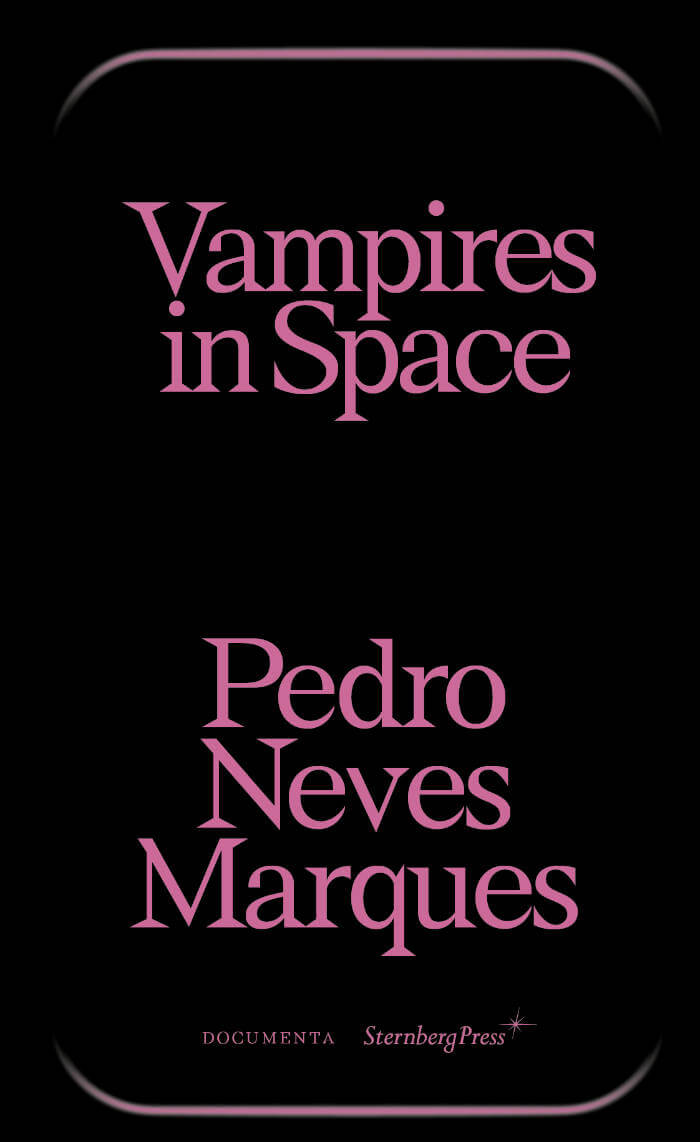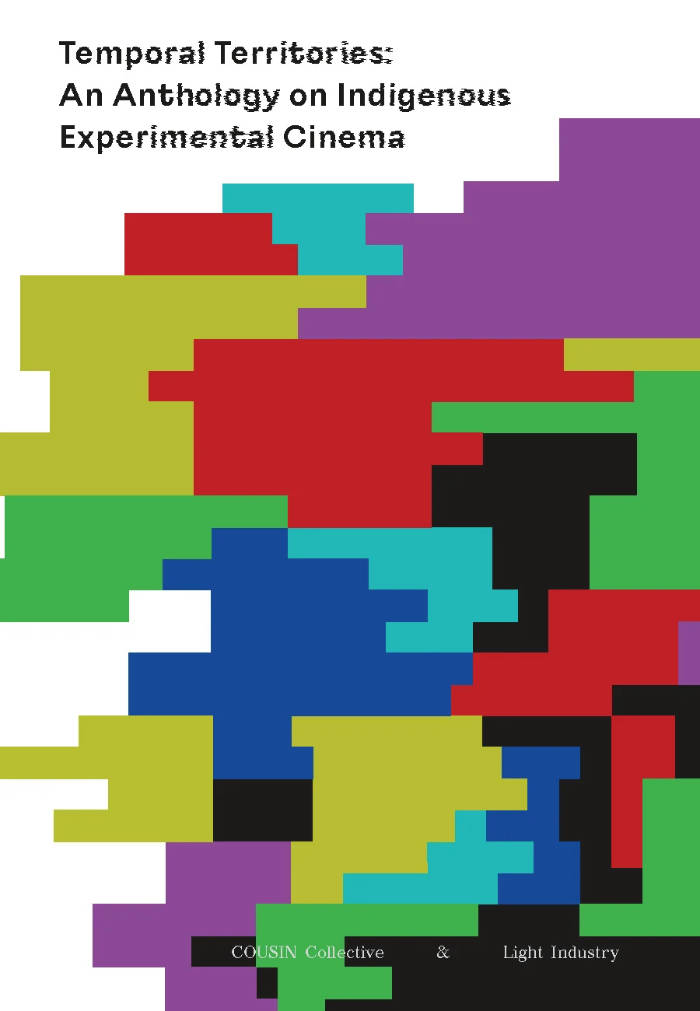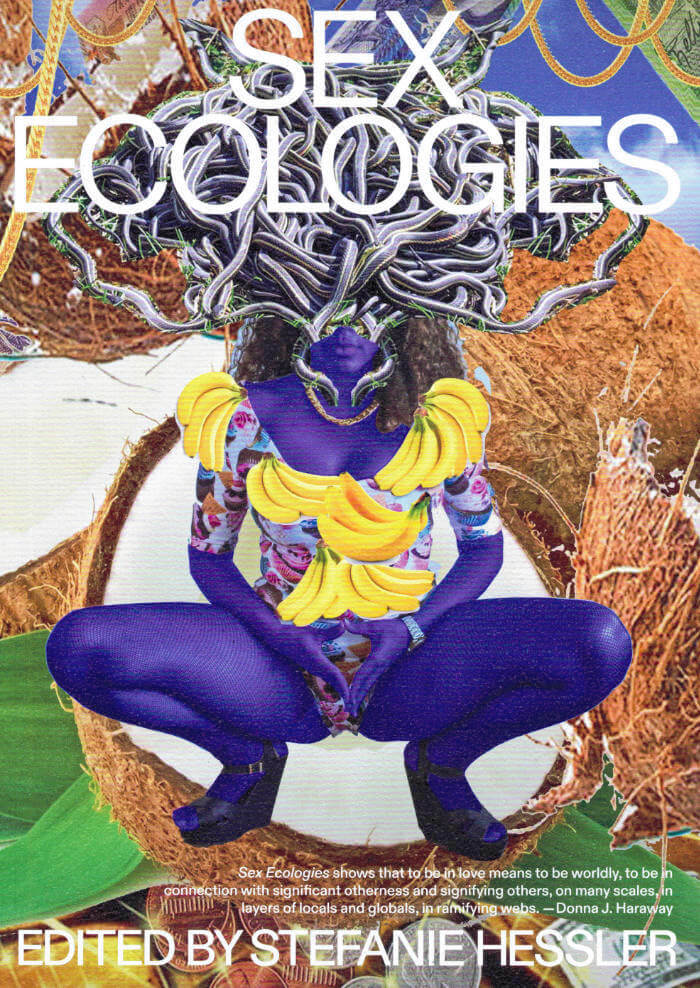Pedro Neves Marques
Pedro Neves Marques

Vampires in Space
Exhibition catalogue of filmmaker, visual artist, and writer Pedro Neves Marques's solo project "Vampires in Space" at the Portuguese Pavilion, 59th International Art Exhibition – La Biennale di Venezia 2022.
"In space it's always night." A family of vampires travels through space, carrying life to a faraway planet. Alone, they recall their past, offering an open-ended narrative about the role of fiction in our lives, with a special care for transgender experiences.
This book includes an interview, film scripts and poetry by Neves Marques, curatorial texts by João Mourão, Luís Silva, alongside visual documentation and other contributions by Manuela Moscoso and Filipa Ramos.
The work of Pedro Neves Marques (born 1984 in Lisbon, Portugal) combines anthropological research, cinema, publishing, poetic and fictional writing. Their hybrid aesthetic, that blends science fiction and documentary realism is influenced by the history of feminist and queer sciences, and projects us into futures that question the control of our bodies, our desires and the world around us beyond the register of dystopia. In doing so, they explore how we might transform our imaginaries of gender, new technologies, ecology and postcolonial issues.

Sex as Care and Other Viral Poems
In Neves Marques’ book, polyamorous encounters and the intimacy of queer lives run parallel to the history of modern science.
Pedro Neves Marques's first poetry collection includes two sets of poems written between 2017 and 2019 and spans the author's biographical geographies, from Brazil and Lisbon to London and New York. From precise geometries to tragicomic gestures and long free verse confessions, Neves Marques’s poetry moves with great honesty between deep social analyses to the tactile quality of remembrance. Whether in a long and devoted poem tying together friendship and historical legacies across the Atlantic in “Brazil” or in the condensed and timed recollections of “Thirteen Days in Lisbon,” the poems collected in "Sex as Care" acknowledge the reality of both care and violence in intimacy. For their part, "Other Viral Poems" takes a more programmatic approach, drawing an analogy between the spread of the Zika epidemic in Brazil, the genetic modification of its carrier mosquito, and the rise of fascism to mount a critique of both gender biases in science and anti-queer populisms. In orderly fashion, the poems coopt a militaristic and technical language to instead create spaces of intimacy where gender, love, trust, and unequal experiences are tested.
Pedro Neves Marques is a writer, visual artist, and filmmaker. Born in Lisbon, they have lived in London, São Paulo, and New York. They have read at e-flux, Poetry Project, The Vera List Center, McNally Jackson Bookstore, Nottingham Contemporary, Gasworks, and Sesc São Paulo, among many others. They have also published two short-story collections, most recently in Portuguese "Morrer na América” (Kunsthalle Lissabon/ Arranha-Céus) as well as in publications by e-flux journal, The Baffler, Verso, Haus der Kulturen der Welt, and MIT Press.
And more

Temporal Territories: An Anthology on Indigenous Experimental Cinema
Cousin Collective, Raven Chacon
Collected writings, artworks and manifestos outlining the developments in Indigenous cinema and its most adventurous practitioners.
Founded in 2018, COUSIN Collective is dedicated to promoting Indigenous artists working with the moving image. Temporal Territories is the collective's critical anthology on Indigenous experimental cinema, bringing together new works, reprints of key writings, theoretical interventions, artist portfolios, intergenerational dialogues and manifestos. With topics ranging from science fiction to found-footage filmmaking to the strange case of the DeMille Indians, the volume surveys a varied and vital body of work, and suggests new forms still to come.
As COUSIN writes in their introduction, "We hope this collection can be something like a celebration, a point along your path that fosters conversations and connections. ...There are no rules to this thing, and you are not alone."
Contributors include: Raven Chacon, Colectivo Los Ingrávidos, Lou Cornum, Grace Dillon, Guillermo Gómez-Peña, Miguel Hilari, Sky Hopinka, Kite, Adam Khalil, Zack Khalil, Pedro Neves Marques, Fox Maxy, Michael Metzger, Jas M. Morgan, Caroline Monnet, Shelley Niro, Adam Piron, Tiare Ribeaux, Diana Flores Ruíz, Walter Scott, Girish Shambu, Paul Chaat Smith, Adam Spry, Elizabeth Weatherford.
This book was published in conjunction with COUSIN Collective.

Sex Ecologies
Sex Ecologies explores pleasure, affect, and the powers of the erotic in the human and more-than-human worlds. Arguing for the positive and constructive role of sex in ecology and art practice, these texts and artistic research projects attempt nothing short of reclaiming the sexual from Western erotophobia and heteronormative narratives of nature and reproduction. The artists and writers set out to examine queer ecology through the lens of environmental humanities, investigating the fluid boundaries between bodies (both human and nonhuman), between binary conceptions of nature as separate from culture, and between disciplines.
In newly commissioned texts from such writers as Mel Y. Chen and Jack Halberstam and a selection of influential essays—including an annotated version of Audre Lorde's “The Uses of the Erotic: The Erotic as Power”—as well as images and sketches from works in progress by a diverse group of artists, Sex Ecologiescombines insights from the fields of art, environmental humanities, ecofeminism, gender studies, science, technology, political science, and indigenous studies.
Sex Ecologies, which accompanies an exhibition of the same name at Kunsthall Trondheim, emerges from an arts-driven research project collaboratively developed between the art center and the Seed Box environmental humanities collaboratory. Conceived not as a result but as a seed arising from this transdisciplinary fertilization, the volume presents a case for the role of sex in environmental and social justice.
Contributors:
Katja Aglert,Tarsh Bates, adrienne maree brown, Mel Y. Chen, Pauline Doutreluingne, Léuli Eshrāghi, Jes Fan, Ibrahim Fazlic, Jack Halberstam, niilas helander, Stefanie Hessler, Jenny Hval, Anne Duk Hee Jordan, Jessie Kleemann, Audre Lorde, Nina Lykke, Montserrat Madariaga-Caro, Camila Marambio, Astrida Neimanis, Pedro Neves Marques, Okwui Okpokwasili, Marie Helene Pereira, Margrethe Pettersen, Laure Prouvost, Filipa Ramos, Catriona Sandilands, Sami Schalk, Serubiri Moses, Leanne Betasamosake Simpson, Annie Sprinkle and Beth Stephens, Kim TallBear, Anna Tje, Alberta Whittle, Victoria Wibeck, Elvia Wilk
Copublished with Kunsthall Trondheim (Norway) and the Seed Box (Sweden)

The Word For World is Still Forest
The Word for World is Still Forest creates a space for the reader-as-exhibition-viewer to consider how forests may be seen not only for their trees, but also how they can enable experiences of elegance, affirmation, and creation for a multitude of creatures. in response to their violent destruction, which characterizes the Anthropocene, these pages traverse various woodlands by way of their semiotic, socio-political, historical, and epistemic incitements in order to reveal how practices of care, concern, and attention also enable humans to inhabit and flourish in this world as forest. Taking its title from Ursula K. Le Guin’s 1972 novella, The Word for World is Still Forest curates an homage to the forest as a turbulent, interconnected, multinature. Moving from concepts of the forest as a thinking organism to the linear monocultural plantations that now threaten the life of global forests, the volume includes interviews, a photo essay, case studies, reflections, drawings, essays and more.
Contributors: Sandra Bartoli, Kevin Beiler, Shannon Castleman, Dan Handel, Katie Holten, Elise Hunchuck, Silvan Linden, Yanni A. Loukissas, Eduardo Kohn, Pedro Neves Marques, Abel Rodríguez, Carlos Rodríguez, Suzanne Simard, Anna-Sophie Springer, Paulo Tavares Etienne Turpin, Catalina Vargas Tovar